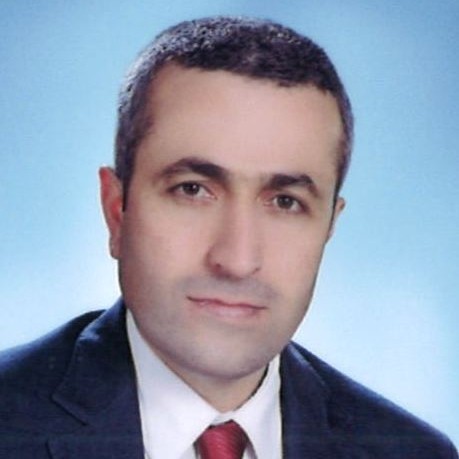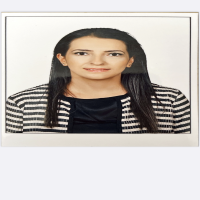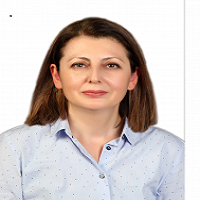Research Article
Issue Reviewers











Artvin Çoruh Üniv. Fen Edeb. Fak. Türk Dili ve Edeb. Blm.



Dr. Ferhat ÇITAK obtained a bachelor of arts in Economics from Gazi University in 2008. He completed his master's degree in Economics at the University of Missouri-Kansas City in 2012 and received his Ph.D. in Applied Economics from Auburn University in 2017. He currently teaches at the Department of Finance and Banking at Hitit University. His research interests include applied econometrics, environmental economics, and financial economics.














 Web
Web
He was born in Kars in 1981. He completed his primary and secondary education in Kocaeli. In 2003, he graduated from the Department of History, Faculty of Arts and Sciences, Süleyman Demirel University. After working as a paid teacher under the Kocaeli Provincial Directorate of National Education between 2003 and 2006, he began his duty in 2006 as a Lecturer in Atatürk’s Principles and History of Reforms at Kafkas University. In 2012, he was appointed as a Research Assistant in the Department of Islamic History and Arts at the Faculty of Theology, Kafkas University. During this period, he completed his Master’s degree at the Institute of Social Sciences, Eskişehir Osmangazi University, in the Department of Islamic History and Arts, under the supervision of Prof. Dr. Hasan Hüseyin Adalıoğlu, with his thesis titled “Transcription and analysis of pages 162–237 of the Sivrihisar court register no. 1.”
In 2017, he started his doctoral studies in the Department of History, Institute of Social Sciences, Anadolu University. Under the supervision of Prof. Dr. Sedat Bingöl, he completed his doctoral dissertation titled “Commercial lawsuits in Ottoman courts during the judicial reform process after the Tanzimat (1840–1914)” in 2024 and earned the title of Doctor.
During his postgraduate and doctoral studies, he served as a Research Assistant (Article 35) at the Faculty of Theology, Eskişehir Osmangazi University between 2014–2016, and at the Department of History, Faculty of Letters, Anadolu University between 2019–2024. He currently holds a position at the Department of Islamic History and Arts, Faculty of Theology, Kafkas University.






 Web
Web


Aim & Scope
Erzurum Technical University Journal of Social Sciences Institute (ETUSBED) aims to host scientific publications containing researches related to social sciences, and to bring together national and international literature with theoretical and methodological research that will contribute to social and human sciences. Thus, it is to contribute to the development of social sciences in the face of world problems with new perspectives and approaches.
Erzurum Technical University Journal of Social Sciences Institute (ETUSBED) is academic, scientific and research-based; It is a journal where original and qualified articles, book reviews and reviews are published. The studies submitted for publication in the journal must be "Research Papers", "Translation", "Book Evaluation", "Discussion", "Conversation" and "Conference/Seminar Texts" that concern social and human sciences. The publication language of the journal is Turkish. Studies written in English are also accepted for publication.
Author Guidelines
Dear Foreign Authors:
ETUSBED attaches special importance to foreign publications and can take particular interest in the studies. Please do not hesitate to contact the editors about even the slightest problem you encounter.
2- Author Contribution Form (includes mandatory information on Ethics Committee and financial support)
3- Conflict of Interest Declaration Form in ICMJE format (All authors must sign one document)
3- Ethics Committee Certificate (Use of humans and animals (including materials/data) for experimental or other scientific purposes, Clinical research on humans, Research on animals, Retrospective studies in accordance with the law on the protection of personal data)
4- Article Cover Page with Personal Information
The Copyright Agreement Form signed by all authors should be attached to the manuscripts to be sent to our journal via the Submit Manuscript link.
Researchers who will submit their studies to our journal should prepare their studies in accordance with internationally recognized ethical principles. At this point, although all scientific, ethical, and legal responsibility of the studies submitted to the journal belongs to the researchers, the editorial board may request an ethics committee certificate when necessary. Studies that the editorial board does not find appropriate for research and publication ethics are not subject to evaluation.
- Author name and address: Since the manuscripts are sent to the referees directly through the system (without making any changes in the file uploaded by the author), there should not be any information identifying the author of the article in order to ensure author-referee confidentiality. For this reason, the name(s) of the author(s) should not be included either in the manuscript or in the file name. For information about the author, the Article Cover Page should be filled in.
- Article Text: Manuscripts should not exceed 8,000 words, should be prepared as an MS Word file, and Book Antiqua font, 10.5 point font, should be used as the font, except for the special cases of some fields of study. If there is a special font used in the study, it must be sent with the manuscript. The study should begin with an Introduction, which should focus on the hypothesis, scope, and purpose of the study. The Development section, which can be divided into intermediate and sub-headings, should be supported by data, observations, opinions, comments and discussions. In the Conclusion section, the conclusions reached in the study should be explained by supporting them with suggestions. Except in mandatory cases, the study should be based on the current Spelling Guide of the Turkish Language Association.
- Title: Studies should be titled in Turkish and English. Titles should consist of a maximum of 12 (twelve) words, and only the first letters should be capitalized. All titles in the text should be written in bold with the first letter capitalized.
- Headings within the Article: In the article, main and subheadings should be created based on the number system according to the processing of the subject.
- Abstract: There should be an abstract in Turkish and English, which expresses the subject of the study in the shortest and most concise form, in the range of 150 - 180 words. Under both abstracts, at least 3 (three) and at most 5 (five) keywords and their English versions should be included. Abstract and Abstract sections should be written in 9 pt and single line spacing.
Authors are advised to make use of the Grammarly website to minimize errors in the abstract section. (Our journal has no interest with the web site)
- Headings in the Article: In the article, main and subheadings should be created based on the number system according to the processing of the subject. The following should be considered in the writing and positioning of the headings:
- Tables
Tables should be included in the main document numbered consecutively in the order cited in the text. Each table should have a descriptive heading above it, and any abbreviations used in the table should be defined below the table in the footnotes (even if they are defined in the text). Above the title, a descriptive caption in italics should encompass the entire title. Tables should be prepared using the "Insert Table" command in a Microsoft Office Word file and organized so that the data are easily read and understood. The data presented in the tables should be different from the data presented in the main text but should support and improve the main text.
- Image and Image Captions
Images, graphics and photos should be submitted as separate files in TIFF or JPEG format and attached to the Word document. If an image has sub-units, the sub-units should be combined into a single image and the images should be labeled (a, b, c, etc.). The minimum resolution for each figure should be 300 DPI and figures should be clear and easy to read. Image descriptions should be listed at the end of the main document. Images/pictures should be cited in the main text and numbered consecutively in the order in which they are mentioned.
- Citations and Footnotes
Direct quotations of less than five lines: either in quotation marks: "Quote" or italicized: Quote. Quotations longer than five lines should be written 0.5 cm from the left of the line, in 10 pt. and " ". Footnotes should be written in 9 pt, 3 pt before and after the paragraph, single line spacing and justified.
- Margins should be 2 cm.
Both in-text citations and the references must be prepared according to the Publication Manual of the American Psychological Association (APA), Sixth or Seventh Edition (2020)
The reference styles for different types of publications are presented in the following examples.
Article: Klimonske, R., & Palmer, S. (1993). The ADA and The Hiring Process in Organizations. Consulting Psychology Journal: Practice and Research, 45(2), 10-36.
More Than One Author:
Jerrentrup, A., Mueller, T., Glowalla, U., Herder, M., Henrichs, N., Neubauer, A., & Schaefer, J. R. (2018). Teaching Medicine with The Help Of “Dr. House.” Plos ONE, 13(3), Article E0193972. https://doi.org/10.1371/journal.pone.0193972
Books
Ancient Author's Book
Evliya Çelebi Seyahatname. (sad. T. Temelkuran & N. Aktaş). 1986. Üçdal Publications.
Ksenophon. Anabasis. (trans. T. Gökçöl). 1974. Hürriyet Publications.
Ebû Abdullah Muhammed İbn Battûta Tancî. İbn Battûta Seyahatnamesi I (trans. A. Sait Aykut). 2004.
Yapı Kredi Publications.
By A Single Author:
Kimmel, M. S. (2007). The Gendered Society. Oxford University Press.
By Two or More Authors:
Difonzo, N., & Bordia, P. (2007). Rumor Psychology: Social and Organizational Approaches. American Psychological Association.
By A Corporate (Group) Author:
American Sociological Association. (1975). Approaches to The Study of Social Structure. Free Press.
Edited Book:
Rhodewalt, F. (Ed.). (2008). Personality and Social Behavior. Psychology Press.
Book Chapter
Mccormack, B., Mccance, T., & Maben, J. (2013). Outcome Evaluation in The Development of Person-Centred Practice. In B. Mccormack, K. Manley, & A. Titchen (Eds.), Practice development in nursing and healthcare (pp. 190-211). John Wiley & Sons.
Dissertation or Thesis:
Valentin, E. R. (2019, Summer). Narcissism Predicted by Snapchat Selfie Sharing, Filter Usage, And Editing [Master's thesis, California State University Dominguez Hills]. CSU Scholar Works. https://scholarworks.calstate.edu/concern/theses/3197xm925?locale=en
Çobanoğlu, S. (2021). Halkbilimi Bağlamında Dede Korkut Hikâyelerinin Halk Felsefesi ve Metaetiksel Çözümlemesi. [Ph.D. Thesis, Yıldırım Beyazıt University, Institute of Social Sciences]. Ankara.
Yıkan, Z. U. (2004). Peyami Safa’nın Server Bedi İmzalı Romanları. [Master's thesis, Gazi University Institute of Social Sciences]. Ankara.
No Author: The Universal Declaration of Human Rights. (1974). U.S. Catholic Conference, Division of Latin America.
Web sites: Sparks, Dana. (2018, September 12). Mayo Mindfulness: Practicing Mindfulness Exercises. Mayo Clinic.
Ethical Principles and Publication Policy
The ethical principles and rules in ETUSBE Journal have been prepared in accordance with the guidelines of the 'Committe on Publication Ethics - COPE (https://publicationethics.org)).
AUTHOR(S)
* The author(s) should not send a work published in any journal or sent for publication to ETUSBE Journal.
* Although the author(s) are expected to submit works of original value to ETUSBE Journal, they should cite all sources used in their studies in line with ethical principles.
* The author(s) should indicate the people who contributed to the study. It should not be recommended to add authors to people who did not contribute to the study (especially for the study that is about to be published).
* If there is a conflict of interest or a union of interests regarding the author(s), the editor(s) must be notified.
* The author(s) should make the mistakes they noticed in their published, preview or evaluation stages in cooperation with the editor (such as informing, retracting or correcting the work).
* The author(s) must upload the ethics committee approval they have received for research that requires an ethics committee decision to the system during the article application. However, the author(s) should cite on the first and last page of the study and in the method section. You can also access the Tr Index Ethical Principles Flow Chart by clicking.
* In case raw data is requested from the author(s) regarding their research, they are obliged to send the necessary data and information to the editorial board and scientific committee.
REFEREE(S)
All studies submitted to ETUSBE Journal are evaluated by double-blind peer-review. While aiming an impartial, objective and independent evaluation process in this applied refereeing, the information of the author(s) and referee(s) will be kept confidential.
* The referee(s) should only accept studies related to their field of expertise.
* The referee(s) should evaluate the work in line with purely scientific principles, impartiality and confidentiality.
* The referee(s) are required to state their evaluations about the study in detail by filling out the Referee Evaluation Form and stating their opinions about the study in detail in the Comments About the Article section below this form.
* The reviewer(s) should reject the evaluation by informing the editor when they realize that there is a conflict of interest or interest.
* The referee(s) should make their evaluations within the framework of an academic language. Personal comments with hostility and insults should be avoided. The referee(s) who make non-scientific comments may be requested to review and correct their comments. However, referee evaluations that do not meet the required standards will not be taken into account.
* The referee(s) are required to complete the work they evaluate within the specified timeframe and comply with the ethical responsibilities stated above.
EDITOR(S)
General Duties and Responsibilities
* The editor(s) should strive to meet the reviewers', authors' and readers' knowledge needs about the process.
* The editor(s) should strive to ensure that the publication quality and process of ETUSBE Journal is carried out and developed in accordance with the determined rules.
* Editor(s), within the framework of publication policies, should activate the processes to improve the quality of the studies, respect the freedom of thought, and make an effort to ensure academic integrity.
* The editor(s) must ensure the protection of the personal data of the author, referee and reader within the framework of the publication policy of ETUSBE Journal.
* Editor(s) must protect the intellectual property rights of all works submitted to ETUSBE Journal. In case of infringement, it should defend the rights of the work and the author(s).
* The editor(s) constantly updates the referee pool and sends the studies to the referees according to their fields of expertise.
* Editor(s) should communicate effectively with everyone involved in the review of all studies submitted to ETUSBE Journal and take precautions against misconduct.
Relations with the Reader(s)
* The editor(s) should pay attention to the contribution of the studies published in the ETUSBE Journal to the scientific literature and to their originality.
* Editor(s) are obliged to give explanatory and informative answers, taking into account the feedback.
Relations with the Author(s)
* Editor(s) should arrange the publication policy and writing rules on sample templates in line with the expectations of the authors.
* Editor(s) should convey the necessary information in a way that does not affect the refereeing process, if the authors request it.
* The editor(s) should advance the process by taking into account the referee's suggestions, unless there are serious problems with the studies.
Relations with the Referee(s)
* The editor(s) should ask the referees to evaluate the articles according to their knowledge and expertise.
* The editor(s) is responsible for providing auxiliary resources such as information, guides, and forms that the referee(s) may need.
* The editor(s) should create a database of referees and update this database according to the performances of the referees.
* The editor(s) should remove the referees from the database who behave in an unfamiliar language and do not comply with the specified deadlines.
* The editor(s) should encourage the referee(s) to evaluate the work in an impartial and scientific language.
UNTHETHIC BEHAVIOR
All studies submitted to ETUSBE Journal are scanned with the iThenticate (http://www.ithenticate.com) software program at the preflight stage. Studies with a similarity rate of less than 25%, complying with the spelling rules and receiving the approval of the language editor are included in the evaluation process. In addition, if the following unethical behaviors are detected, the study is rejected.
* Among the authors of the study, there are people who did not contribute intellectually.
* If the study is produced from any of the studies such as master's / doctorate / project / academic presentation, it is not stated.
* Transforming the work into more than one work by dividing it into parts.
* Failure to report conflict of interest or association of interests of the study.
* Interfering with the refereeing process of the study.
Price Policy
ETUSBE Journal does not charge any fee for the submission, evaluation and publication of the articles. Authors do not pay article processing fees or submission fees for the studies they submit to the journal. All expenses of the journal are covered by Erzurum Technical University.
ETÜSBED is an open access journal which means that all content is freely available without charge to the user or their institution. Users are allowed to read, download, copy, distribute, print, search, or link to the full texts of the articles, or use them for any other lawful purpose, without asking prior permission from the publisher or the author. This is in accordance with the BOAI definition of open access.
The journal does not require article processing charges or any other author fees.
ETUSBE Dergisi, Budapeşte Açık Erişim Deklarasyonunu imzalamıştır.
Bk. http://www.budapestopenaccessinitiative.org/list_signatures/
Indexes
Journal Boards
Chef Editor

Editor

Language Editor
Writing Editor

Editorial Board

Kübranur ÇEBİ KARAASLAN got her bachelor's, master's and doctorate degrees in the department of econometrics. She was appointed as an assistant professor at Erzurum Technical University, Department of Econometrics in 2021. She became an associate professor in 2022. Her main research interests are discrete choice model, categorical data, count data, microeconometrics, happiness economics, household expenditures, consumer behavior.
Skills & expertise
Applied Statistics • Microeconometrics • Data Analysis Discrete Choice Modeling • Survey Methodology and Data Analysis • Statistical Analysis. Tobit • Logistic Regression • Count Data • G*Power • Gompit Statistical Power and Power Analysis Quantile Regression


He has been awarded a Bachelor of Science in Political Science and Public Administration from Middle East Technical University in 2009. He received another undergraduate degree from the Department of Economics at Anadolu University in 2010. He did a pre-master’s degree in Management at the University of Southampton in 2012. He has been awarded the degree of Master of Arts in Politics with distinction at the University of Sheffield in 2013. He completed his PhD studies at the University of Sheffield under the supervision of Prof. Dr. Jonathan Joseph and Prof. Dr. John M. Hobson in September 2018 and gained the title of ‘Dr.’ in the field of Political Science. Following the completion of his PhD at the University of Sheffield, he initiated his academic career as a ‘Lecturer‘ at Erzurum Technical University in March 2019. He was appointed as ‘Assistant Professor‘ to the Department of Political Science and Public Administration of the same university in August 2020. During his tenure, he held the title of ‘Head of the Department of Political Science‘. The title of ‘Associate Professor‘ was conferred on him in August 2023 within the field of Political Science. His main areas of academic research are political theory, political philosophy, international politics, political communication, political marketing, public relations, critical discourse studies, hegemony, propaganda, gender and cultural studies. His articles on politics, sociology, philosophy, international relations and economics appear in multiple newspapers and magazines. He speaks Turkish as a mother tongue, English fluently and German at beginner level.



Field Editors





 Web
Web




 Web
Web
Kadir Deligöz was born in Erzurum in 1989. He holds master’s and doctorate degrees from the Department of Production Management and Marketing, Atatürk University. He is currently working as an Assistant Professor at the Faculty of Economics and Administrative Sciences, Atatürk University. Deligöz has published many books, book chapters, articles, and papers. Deligöz is married with a daughter.


1989 yılında Erzurum’da doğdu. İlk ve orta öğrenimini Erzurum’da tamamladı. 2011 yılında Atatürk Üniversitesi Edebiyat Fakültesi Türk Dili ve Edebiyatı Bölümü’nden mezun oldu. 2011 yılında başladığı Atatürk Üniversitesi Sosyal Bilimler Enstitüsü Eski Türk Edebiyatı Anabilim Dalı’nda Yüksek Lisans eğitimini İsmâil Hakkı Halvetî ve Tefsir Günlüğü adlı teziyle 2014 yılında; aynı yıl başladığı Atatürk Üniversitesi Türkiyat Araştırmaları Enstitüsü Eski Türk Edebiyatı Anabilim Dalı doktora programını 2017 yılında Tellizâde Vehbî ve Urfî-i Şîrâzî Dîvânı Şerhi adlı çalışmasıyla tamamladı. 2012-2013 yılları arası Trakya Üniversitesi Türk Dili ve Edebiyatı Bölümü’nde, 2013-2017 yılları arası Erzurum Teknik Üniversitesi Türk Dili ve Edebiyatı Bölümü’nde Araştırma Görevlisi olarak çalıştı. 2018-2021 yılları arasında Erzurum Teknik Üniversitesi Türk Dili ve Edebiyatı Bölümü’nde Doktor Öğretim Üyesi olarak görev yapan Gözitok, halen aynı üniversitede Doçent unvanıyla bilimsel çalışmalarına devam etmektedir.












Advisory Board (Verified)

Marmara Üniversitesi Öğretim Üyesi

 Web
Web



 Web
Web




 Web
Web

Ahmet Sarı, Atatürk Üniversitesi Alman Dili ve Edebiyatı Bölümünde Prof. Dr. olarak görev yapmaktadır. Sarı, Alman kültürü ve edebiyatı üzerine çalışmalar yapmaktadır.

 Web
Web

 Web
Web




 Web
Web
varlık felsefesi, metafizik, Mantık


1984 yılında Ankara Üniversitesi Dil ve Tarih Coğrafya Fakültesi Ortaçağ Tarihi Kürsüsü’nden mezun oldu. Aynı Yıl mezun olduğu Fakülte’de Asistan olarak göreve başladı. 1988 yılında Yüksek Lisansını, 1995 yılında ise Doktora eğitimini tamamladı.
1989-1990 yılları arasında Mısır Arap Cumhuriyeti’nde burslu olarak ňaraştırma ve incelemelerde bulundu.
1995-1998 yılları arasında Sivas Cumhuriyet Üniversitesi’nde, 1998- 2003 yılları arasında ise Afyon Kocatepe Üniversitesi’nde, Yardımcı Doçent olarak Ortaçağ devri Türk - İslam tarihine ait Lisans ve Yüsek Lisans derslerini yürüterek akademik faaliyetlerini devam ettirdi.
2003 yılından itibaren Gazi Üniversitesi Fen-Edebiyat Fakültesi’nde öğretim üyesi olarak akademik faaliyetlerini devam ettiren Süleyman Özbek; 2008-2010 yıllarında Bosna Hersek Cumhuriyeti, Tuzla Üniversitesi’nde ve 2010-2011 yıllarında ise Suriye Arap Cumhuriyeti, Haleb Üniversitesinde misafir öğretim üyesi olarak Türk Tarihi ve Türk Kültürü dersleri verdi.
2013 yılında Doçent, 2019 yılında profesör payesini alan Süleyman Özbek Halen Hacı Bayram Veli Üniversitesi Edebiyat Fakültesinde akademik çalışmalarını devam ettirmektedir.


 Web
Web







Gökhan Tunç, 2002 yılında Ankara Üniversitesi, Dil ve Tarih-Coğrafya Fakültesi Türk Dili ve Edebiyatı Bölümünde lisans; 2006 yılında, Bilkent Üniversitesi Türk Edebiyatı Bölümünde yüksek lisans eğitimini tamamladı. 2011 yılında hazırladığı “Millî Mücadele’nin Türk Romanına Yansıması” adlı teziyle Ankara Üniversitesi Sosyal Bilimler Enstitüsünden doktor unvanını aldı. Adam Öykü, Atatürk Üniversitesi Türkiyat Araştırmaları Enstitüsü Dergisi, Bilig, Edebiyat Otağı, Erdem, Folklor ve Edebiyat, Hece, Karadeniz Araştırmaları, Kardeş Kalemler, Kebikeç, Millî Folklor, Şehriyar, Tübar, Turkish Studies, Türk Edebiyatı, Uluslararası Sosyal Araştırmalar, Yeni Türk Edebiyatı Araştırmaları gibi dergilerde yazıları yayımlandı. 2011 yılında Kadim Yayınlarından Çağdaş Mesnevinin Peşinde: Nâzım Hikmet’in Ferhad ile Şirin’i ve Sezai Karakoç’un Leylâ ile Mecnun’u adlı kitabı; 2018 yılında Ötüken Yayınlarından Rüzgâra Karşı Duran Şair: Etkilenme Endişesi Kavramı ve Yahya Kemal’in Türk Şiirine Etkisi ve Hece Yayınlarından Kavramlar ve Kuramlarla Modern Türk Şiiri İncelemeleri adlı kitapları yayımlandı. Hüseyin Cahit Yalçın’ın eski harflerle yayımlanan Hayâl İçinde adlı romanını bir inceleme ile birlikte yeni harflere aktardı. Ayrıca İş Bankası Kültür Yayınlarından yayımlanan Asfalt Ovalarda Yürüyen Abdal: Behçet Necatigil adlı kitabı yayına hazırladı. Anadolu Üniversitesi tarafından yayımlanan Türk Klasikleri serisinin genel yayın yönetmenliğinde bulundu. Tunç, 2003 yılında Bilkent Üniversitesi, Türk Edebiyatı Bölümünden Melih Cevdet Anday Onur Ödülü’nü; 2011 yılında yayımlanan Çağdaş Mesnevînin Peşinde: Nâzım Hikmet’in Ferhad ile Şirin’i ve Sezai Karakoç’un Leylâ ile Mecnun’u adlı kitabıyla İLESAM tarafından yılın edebî tenkit ödülünü; 2021 yılında Şiir ve Bellek: Modern Türk Şiirinde Bellek Metaforları kitabıyla Söylem Filoloji ve Mehmet H. Doğan ödülünü aldı. Hâlen Anadolu Üniversitesi Edebiyat Fakültesi Türk Dili ve Edebiyatı Bölümünde öğretim üyeliği görevini sürdürmektedir.

2008 yılında Erzurum Mecidiye Anadolu Lisesinden mezun olmuştur. Aynı yıl Bursa Uludağ Üniversitesi Maliye Bölümünü kazanmıştır. 2012 yılında maliye bölümünden mezun olduktan sonra ertesi yıl Bursa Uludağ Üniversitesi Sosyal Bilimler Enstitüsü Maliye Ana Bilim Dalında yüksek lisans programına başlamış olup 2013 yılında araştırma görevlisi olarak atanmıştır. 2015 yılında ise yüksek lisans programından mezun olmuştur. Aynı yıl Bursa Uludağ Üniversitesi Sosyal Bilimler Enstitüsü Maliye Ana Bilim Dalında doktora programına başlamış olup 2023 yılında mezun olmuştur. Halen görevine Dr. Öğretim Üyesi olarak devam etmektedir. Mali hukuk başta olmak üzere bir çok interdisipliner alanda çalışmalar yapmakta olup özellikle tebligat hukuku ve ihale hukuku ile ilgili yayınları bulunmaktadır.






















